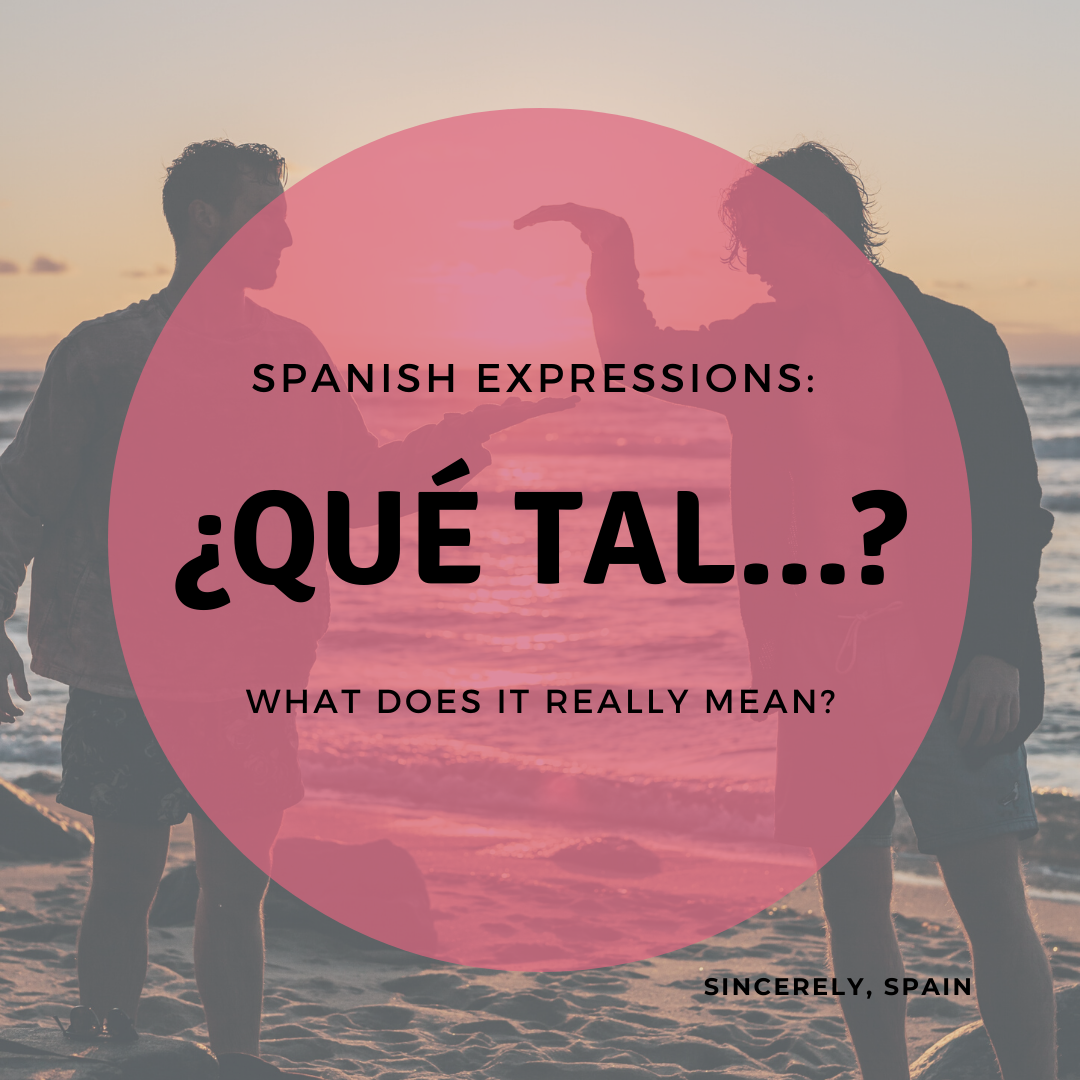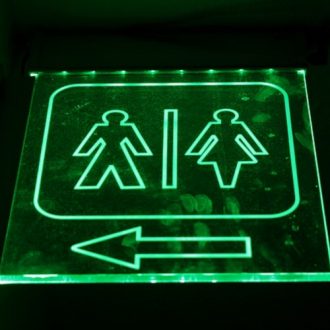
Expressions: ¿Qué tal…?
Dear Ashley,
We love talking about Spanish expressions over here at Sincerely, Spain. Some of the expressions may be a little bit hard to put into use (such as “me cago en…”) and others like “¿qué tal…?” are ones that you will hear in everyday conversations. If you are interested in more Spanish expressions as they are used in Spain, we recommend:
Now let’s get into what this expression means.
ROUGH ENGLISH TRANSLATION: How is/was such…?
This is one of those expressions that doesn’t make sense if you translate it directly to English because the way sentences are constructed and thought about is quite different. ‘Qué,’ with the accent on the e, is a question word that is usually used to mean ‘what.’ In this case, together with ‘tal’ (an adverb that could be translated as ‘such’ or ‘it’) we find that we are missing a verb and subject to complete the sentence.
That is why this expression is often part of a conversation where the verb and subject is understood by the context or accompanied by an explanation.
 HOW IT IS USED:
HOW IT IS USED:
When we hear “¿qué tal?” in everyday conversations, what we are often hearing is a shortened version of “¿qué tal estás?” or “how are you?” This is a very common expression to use for a variety of different situations and is acceptable for when you are meeting up with friends or just running into someone you haven’t seen for awhile in the street or talking to your local shop owner. If you are in Spain for any period of time, you will probably hear this expression used in this way multiple times a day.
This is not the only way to use this expression, however, and you will also find that people add different subjects and verbs to the end of it as well. You can also use it to ask about how something, such as a trip, went by saying “qué tal [fue] tu viaje?” (How was your trip?”) When used this way, the verb is often implicit in the sentence and, in spoken language, omitted so the question becomes “¿qué tal tu viaje?” (Literally translated to: How your trip?)
TWO EXAMPLES IN CONTEXT
This expression is quite easy to use. Like we mentioned above, it can be used in very general situations for asking how someone is. It can also be used for more specific situations where you want feedback from someone. For example, if you’re out with a friend and he got a piece of cake and you are debating having one, the conversation could go along the lines of:
You: No sé si quiero un trozo de bizcocho. ¿Qué tal el tuyo? (I don’t know if I want a slice of cake. How is yours?)
Your friend: Es delicioso. ¿Quieres probarlo? (It’s delicious. Do you want to try it?)
You: Sí! Gracias. (Yes! Thank you.)
You can also use this expression to see how something, like an exam, has gone for someone. A short dialog could be something like:
You: Oye, ¿qué tal fue tu exámen de mates? (Hey, how did your math exam go?)
Your friend: Eh. No me ha salido mal pero no quiero pensarlo más ahora. ¿Vamos a tomar algo? (Eh. It wasn’t bad but I don’t want to think about it now. Do you want to go drink something?)
OUR PERSONAL ADVICE:
In Spain this expression is used frequently and while it isn’t the most elegant expression there is nothing wrong with using it on a regular basis (in fact, most people do). We might warn you though that most people don’t ask you ¿qué tal? in a deep or profound sense. Most of the time they are looking for a response that is “bien,” or good. This is not to say that if a good friend asks you how you are that you shouldn’t answer from your heart but that it is a common thing to say and might not have any more meaning than saying hello.
 You should also know that in text talk (aka Whatsapp, the way to talk in Spain—read more here) this expression is often translated to “¿K tal?” This can be confusing if you don’t know what you are looking for but, if you find yourself in this situation, we recommend literally saying the words in the message to help you get a better idea of what it means. In this case the English letter ‘k’ sounds like the word ‘que’ in Spanish and is an easy way to reduce the number of letters one has to write while texting.
You should also know that in text talk (aka Whatsapp, the way to talk in Spain—read more here) this expression is often translated to “¿K tal?” This can be confusing if you don’t know what you are looking for but, if you find yourself in this situation, we recommend literally saying the words in the message to help you get a better idea of what it means. In this case the English letter ‘k’ sounds like the word ‘que’ in Spanish and is an easy way to reduce the number of letters one has to write while texting.
How do you use this expression?
Sincerely,
Spain




